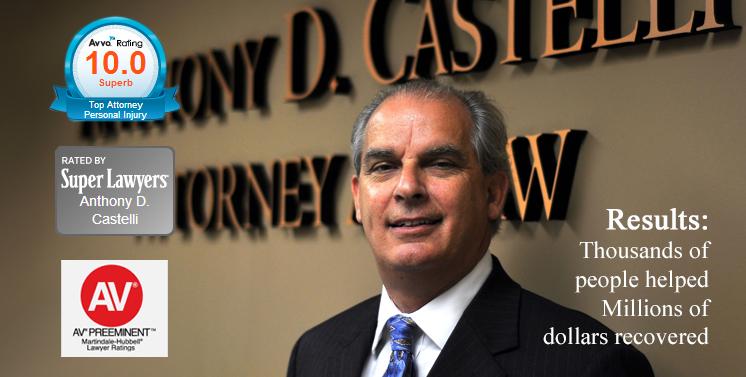If the employer contests the claim, a denial may be issued even without a hearing. Therefore, it is important for you to immediately seek the advise of an attorney if you get anything from worker's compensation. Mr. Castelli handles his worker's compensation claims on a contingency basis, which means that a legal fee is paid only if he successfully obtains a recovery for you, although there may be expenses.
Can I Recover Workers' Compensation Benefits if I Work for Federal, State or Local Government?
State and Local Employees
Whether a state or municipal employee is covered by the state's workers' compensation statutes, or by a different system, depends on the specific provisions of each state's laws. In general, state workers' compensation statutes specifically set forth which types of employees are eligible to receive benefits under the state system, and which types of employees are not.
Most state statutes prohibit payment of workers' compensation benefits to "officials" of the state. However, who is considered an "official" can often be questionable. As a general rule of thumb, if an individual exercises some portion of the state's sovereign power, he or she will be considered an official and therefore ineligible to collect workers' compensation benefits.
A common issue arises regarding the right or ability of police officers and firefighters to recover workers' compensation benefits. These individuals do not fit squarely into the definition of an employee nor can they be considered "officials." Many state statutes, in recognition of this issue, have specific provisions within their acts to clarify that workers' compensation benefits, rules, and requirements will apply to these individuals.
In order to determine whether a particular state or municipal employee is covered by the state's workers' compensation scheme, an attorney should be consulted to carefully examine the particular state's laws.
Federal Employees
In general, federal employees do not receive workers' compensation benefits from their employers under state systems. Instead, federal employees have separate systems through which they can seek to recover benefits for work-related injuries.
The Federal Employee's Compensation Act (FECA) controls the rights of most federal employees to obtain workers' compensation benefits. FECA allows for the recovery of benefits when a federal employee is either disabled or killed as a result of an injury "sustained while in the performance of duty."
Special types of employees may bring claims for benefits under other, specific federal acts. For example, the Federal Employer's Liability Act was enacted to provide recovery for injuries sustained by employees engaged in interstate transportation, such as railroad workers. The Jones Act provides for seamen in the case of work-related injuries, and the Longshore and Harbor Workers' Compensation Act provides similar benefits to longshoremen and others who are engaged in maritime activities on navigable waters. Other statutes that play a role in the compensation of certain employees include: The Outer Continental Shelf Lands Act, the Death on the High Seas Act, and the Defense Base Act (for employees working on defense bases or public works projects outside the U.S.).
Whether an employee falls under the protection of FECA, or another act designed to protect other specific categories of employees, will depend on the nature of the employment and a close examination of the facts of the particular case. Therefore, it is advisable to discuss the laws that might govern your railroad workers' compensation claim with an experienced workers' compensation attorney.


